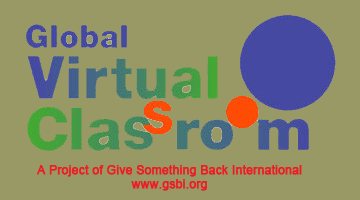
What is a Natural Disaster? According to wiseGeek.org “A natural disaster is an event with a natural, as opposed to human, cause that results in large-scale loss of life or damage to property. Some examples of natural disasters are volcanoes, earthquakes, or tsunamis.
How Can You Help A Community Recover From a Natural Disaster? The people at FEMA.org say that there are many things you can do after a disaster in your community. First of all, you can get proper plans and tools just in case of a disaster. You can help discuss the feeling you have with you and your family. This will help you acknowledge your feelings, so you can accept or dispel them. You can be with friends or do something like be at a memorial to help yourself be calm. Sometimes FEMA and state or local governments of the affected area may provide crisis-counseling assistance so people very affected can get help. Some things that tell you if you have disaster-related stress are: Difficulty communicating thoughts, difficulty sleeping, difficulty maintaining balance in their lives, low threshold of frustration, increased use of drugs/alcohol, limited attention span, poor work performance, headaches/stomach problems, tunnel vision/muffled hearing, colds or flu-like symptoms, disorientation or confusion, difficulty concentrating, reluctance to leave home, depression, sadness, feelings of hopelessness, mood- PJMS's efforts to heal the effects of Hurricane Sandy PJMS participated in two different efforts this year to help the victims of Hurricane Sandy. The first was a can good drive, in which the cans where donated to realtor Dan Bogojevich who had planned a relief trip to New York to help the victims. Bogojevich collected food, money, toiletries and other miscellaneous donations. To read more on Bogojevich's journey to New York please click here. Students at PJMS also participated in an all school Penny Wars. The winning advisory would win a free breakfast, but all money collected went towards victims of Hurricane Sandy. Students could put dollar bills or pennys in their own jar for positive points or silver coins in other advisory jars for negative points. Whowever had the most points at the end won a breakfast. In the end however, the real winner was every single advisory. Our students raised $3,032.72 in a two in a half week period. All proceeds were donated to the American Red Cross for Huricanne Sandy Relief. |
Text by: Sam of PJMS
Original Drawings by students of Boglari
Template Designed by Students of PJMS
Software Used:
- Dreamweaver
Logo Image Provided by: GSBI
Works Cited
Antarcticice. "Other Countries Helping in Natural Disaster?" Yahoo! Answers. Yahoo!, n.d. Web. 28 Jan. 2013.
http://answers.yahoo.com/dir/index?sid=2115500306&link=list
FEMA.GOV. "Coping with Disaster | FEMA.gov." Coping with Disaster | FEMA.gov. U.S. Department of Homeland Security, n.d. Web. 07 Feb. 2013.
http://www.fema.gov/coping-disaster
WiseGeek. "What Is a Natural Disaster?" WiseGEEK. Conjecture Corporation, 2013. Web. 31 Mar. 2013.
http://www.wisegeek.org/what-is-a-natural-disaster.htm.
Boglári Általános Iskola
Balatonboglár. Hungary
Percy Julian Middle School
Oak Park, Illinois USA
ST Marks School
New Delhi, India